POSTS BY AUTHOR
Scott WAIDE
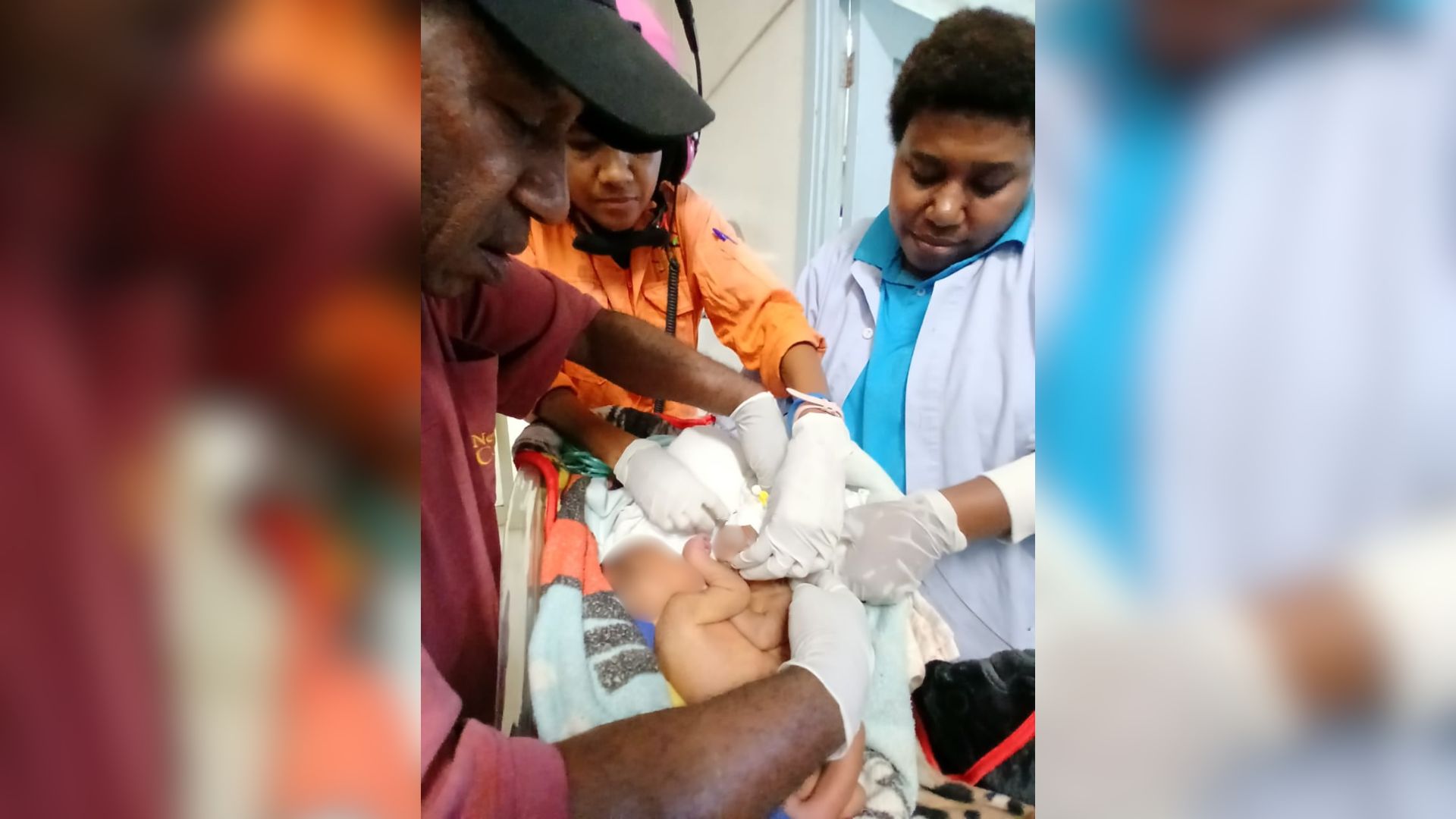 RARE CASE OF CONJOINED TWINS DELIVERED AT BRAUN HOSPITAL
RARE CASE OF CONJOINED TWINS DELIVERED AT BRAUN HOSPITAL
A rare and remarkable case of conjoined twins was delivered at Braun Hospital in Finschhafen, Morobe Province, two days ago.
Despite limited resources, hospital staff successfully stabilized the newborn boys before arranging their transfer to Lae for further care.
The twins, who are conjoined at the lower portion of their bodies and share some organs, but have separate limbs and genitals, were transferred to Angau Memorial Hospital in Lae for specialized treatment.
Their mother, Fatima Kevin from Finschhafen, shared that while doctors detected two heartbeats during pregnancy, the conjoined condition was only discovered at the time of delivery.
Braun Hospital, a Lutheran church-run facility, has long faced funding challenges but continues to serve the rural community.
Medical staff are now considering sending the twins overseas for possible separation surgery, depending on further evaluation.
Conjoined twins are extremely rare in the country, with only a few documented cases in recent decades.
Published on October 13, 2025
 GODFATHER OF HEAVY METAL OZZY OSBOURNE PASSES ON AT 76
GODFATHER OF HEAVY METAL OZZY OSBOURNE PASSES ON AT 76
In the 1960s, Ozzy was a pioneering heavy metal artist who, along with Black Sabbath guitarist Tony Iommi, was one of the primary contributors to the creation of what we now know as the genre of heavy metal.
As their charismatic frontman, he quickly became known for his distinctive vocals and theatrical stage presence.
With Black Sabbath, he released a series of highly influential albums, including "Black Sabbath," "Paranoid," and "Master of Reality," which helped define the sound of heavy metal.
His time with the band established him as a significant figure in rock music before he embarked on a successful solo career.
Ozzy’s music evolved over six decades.
From the pioneering work of Black Sabbath, Ozzy’s signature vocals complemented the playing style and the new, heavier tone created by Tony Iommi, who had to change how he played to accommodate for half a finger he had lost during a work accident.
There are many life lessons we can draw from his life:
Consistency – For 60 years, he dedicated his life to getting better despite his many personal challenges.
Even as he battled alcohol and drug addictions, he never wavered from his life mission as a music ambassador.
Hard work – He played for royalty and for millions of fans all over the world.
The work that went on behind the scenes exemplified the enormous amount of effort he put in to be the best.
Unapologetic – Ozzy was never the "best" singer, but he did what he loved without caring what anybody thought about him.
Gratitude – For me, one of the greatest traits he showed was always being grateful to his family and his fans.
Authenticity – Ozzy never tried to be someone else. While some things he said would have been a PR nightmare, his authenticity won out. He was who he was.
Towards the end of his life, he held one final concert on July 5th for his fans.
Forever grateful, he thanked them and passed on the torch to younger artists.
Despite his dark onstage persona, Ozzy Osbourne was a husband, a dad, and a granddad.
Published on July 24, 2025
 RAPA CALLS ON HIGHLANDS LEADERS TO ADDRESS INTERNAL REFUGEES & GUN VIOLENCE
RAPA CALLS ON HIGHLANDS LEADERS TO ADDRESS INTERNAL REFUGEES & GUN VIOLENCE
Western Highlands Governor, Wai Rapa, has issued a call for leaders of all Highlands provinces to come together and find solutions to gun violence and the internal refugee crisis caused by the multiple conflicts.
Governor Rapa was speaking at a UN-led regional consultation meeting on gun control, chaired by Former PNGDF Commander, Major General Jerry Singirok.
Governor Rapa did not hold back as he spoke about the pressures on services the Western Highlands, and particularly Mt. Hagen city, were dealing with as a result of the ongoing refugee crisis from the upper highlands region.
"Whatever is happening in Enga, I'm feeling it here. Whatever is happening in Hela, I'm feeling it here. Whatever is happening in Western Highlands, they are feeling it too. So, it's one way or the other, it's affecting all of us,” Governor Rapa said.
“You've seen some schools up in Enga burn down. Some high schools, community schools. Where do you, where do you think all these kids are going? They all come down to Hagen. The hospitals? When there's a tribal fight up there? They're aiming for Mt. Hagen. When some of them are getting bullet wounds or injuries during tribal fights, they come to Mt. Hagen. So, we cannot chase them away.”
Governor Wai Rapa’s statement may be a political statement, but it is backed by hard evidence from experts and implementers of service delivery.
Chief Executive of the Western Highlands Provincial Health Authority, Jane Holden, presented disturbing data from the Mt. Hagen Hospital which shows the highest number of trauma cases in the country.
The majority of the cases come from the upper highlands from tribal fights and alcohol-related violence.
“It is expensive to treat bullet wounds. At the most, they’re supposed to be in hospital for five days. They’re staying for 35 days. They have to come back for surgery,” Holden said.
Law enforcers are also struggling to do their jobs with limited manpower. Western Highlands has about 450 police men and women.
The growth of settlements around Mt. Hagen places additional pressure on the ability of police to contain serious crime.
“We look at refugee migration as something that happens overseas. But it’s happening right here. Large numbers of people are leaving their villages and ending up here in Mt. Hagen. For police it is really difficult,” said Chief Superintendent John Sagom, the Provincial Police Commander.
“When we arrested people for drugs, the courts found that everyone we arrested had migrated from tribal fighting areas and they were selling drugs because they had to make a living.”
Governor Wai Rapa admits politicians have to take responsibility for the proliferation of illegal guns in the highlands, and he has called for Highlands MPs and governors to gather to address the crisis.
“I’m saying we have to address this with all my brother governors.”
Published on June 25, 2025
 BREAKING THE SILENCE| TALKING MY MENTAL HEALTH JOURNEY
BREAKING THE SILENCE| TALKING MY MENTAL HEALTH JOURNEY
Mental health is not something that men talk about.
Especially not in Papua New Guinea.
As a man, you’re just supposed to deal with it, to carry the weight without complaint.
For a long time, I didn't even have the words for what I was carrying.
When you’re dealing with mental health on two fronts—personal and professional—it’s a unique kind of struggle.
Professionally, especially as a journalist, you’re exposed to so much, but you process it as part of the job.
You don’t realize you’re navigating a minefield of trauma.
As a young, energetic reporter starting out at EMTV, I wanted to be on the front lines.
I chose the crime beat. That choice put me in the most undesirable places imaginable.
I spent time at the city morgue, breathing in the unforgettable smell of rotting human bodies when the freezers failed.
I stood at the scenes of horrific car accidents, witnessing bodies torn apart.
I reported from the aftermath of police shootouts, where people were ripped apart by bullets.
I covered stories of children who had been abused, raped, and murdered.
I remember one incident vividly: a young child in grade five, killed in a payback attack, completely unrelated to the fight that started it.
In the space of about 12 to 36 months, I absorbed all of this.
I was running on adrenaline, telling myself it was just the job.
I had no idea I was spiralling into Post-Traumatic Stress Disorder.
The realization came much later, years after I’d left that role and joined the Australian Broadcasting Corporation.
We were undergoing mandatory trauma training, and as the instructor went through the symptoms of PTSD, I found myself ticking off every single box.
The trauma I was carrying, the trauma I thought was unique to my experiences in urban PNG, was the same as what reporters and crews who had been to war zones like Afghanistan were going through.
The difference was, they often had support systems.
I’d had none.
I didn't have the benefit of counselling.
I had no concept of primary and secondary trauma; no understanding of what Post Traumatic Stress Disorder truly was.
The training was my crash course, and it was the beginning of a long, overdue process of healing.
For the first time, I had to allow myself to heal.
That meant stepping away from the constant barrage of negativity I had seen for years.
It meant finally processing it, talking about it in a series of conversations with different people—friends, family, and professionals.
Expressing what I truly felt was the key that unlocked my own prison.
The ABC had a wonderful peer counselling system.
It was an anonymous hotline you could call any time of day and speak to a trained peer counsellor.
It didn't matter how many times you called; they would always answer and guide you through the process.
That support was life changing.
I also learned how my trauma had spilled over into my family life.
I had become overprotective.
I would get angry over small things that shouldn't have warranted it.
My unprocessed pain was affecting them.
It taught me to be careful, especially around my children.
You don't want to pass on that burden as secondary trauma by speaking too graphically in their presence.
One of the most important things I learned was about triggers—the specific sights, sounds, scents or situations that could cause me to either explode with anger or implode with despair.
I was sensitive to the smell of blood.
It gave me mental images of crime scenes.
Understanding them gave me a new level of control over my life.
My experience is not unique.
So many men in my country, particularly in high-stress jobs like police, emergency services, and the military, go through the same silent suffering.
The expectation is to be strong, to be stoic.
But that silence is a heavy burden, and it breaks you from the inside out.
My journey was difficult and painful, but it gave me a language for my pain and, ultimately, a path toward healing.
Published on June 18, 2025
 BREAKING THE SILENCE| TALKING MY MENTAL HEALTH JOURNEY
BREAKING THE SILENCE| TALKING MY MENTAL HEALTH JOURNEY
Mental health is not something that men talk about. Especially not in Papua New Guinea. As a man, you’re just supposed to deal with it, to carry the weight without complaint.
For a long time, I didn't even have the words for what I was carrying. When you’re dealing with mental health on two fronts—personal and professional—it’s a unique kind of struggle. Professionally, especially as a journalist, you’re exposed to so much, but you process it as part of the job.
You don’t realize you’re navigating a minefield of trauma. As a young, energetic reporter starting out at EMTV, I wanted to be on the front lines. I chose the crime beat. That choice put me in the most undesirable places imaginable. I spent time at the city morgue, breathing in the unforgettable smell of rotting human bodies when the freezers failed. I stood at the scenes of horrific car accidents, witnessing bodies torn apart.
I reported from the aftermath of police shootouts, where people were ripped apart by bullets. I covered stories of children who had been abused, raped, and murdered. I remember one incident vividly: a young child in grade five, killed in a payback attack, completely unrelated to the fight that started it. In the space of about 12 to 36 months, I absorbed all of this. I was running on adrenaline, telling myself it was just the job. I had no idea I was spiralling into Post-Traumatic Stress Disorder. The realization came much later, years after I’d left that role and joined the Australian Broadcasting Corporation.
We were undergoing mandatory trauma training, and as the instructor went through the symptoms of PTSD, I found myself ticking off every single box. The trauma I was carrying, the trauma I thought was unique to my experiences in urban PNG, was the same as what reporters and crews who had been to war zones like Afghanistan were going through. The difference was, they often had support systems. I’d had none. I didn't have the benefit of counselling. I had no concept of primary and secondary trauma; no understanding of what Post Traumatic Stress Disorder truly was.
The training was my crash course, and it was the beginning of a long, overdue process of healing. For the first time, I had to allow myself to heal. That meant stepping away from the constant barrage of negativity I had seen for years. It meant finally processing it, talking about it in a series of conversations with different people—friends, family, and professionals. Expressing what I truly felt was the key that unlocked my own prison.
The ABC had a wonderful peer counselling system. It was an anonymous hotline you could call any time of day and speak to a trained peer counsellor. It didn't matter how many times you called; they would always answer and guide you through the process. That support was life changing. I also learned how my trauma had spilled over into my family life. I had become overprotective. I would get angry over small things that shouldn't have warranted it.
My unprocessed pain was affecting them. It taught me to be careful, especially around my children. You don't want to pass on that burden as secondary trauma by speaking too graphically in their presence. One of the most important things I learned was about triggers—the specific sights, sounds, scents or situations that could cause me to either explode with anger or implode with despair. I was sensitive to the smell of blood. It gave me mental images of crime scenes. Understanding them gave me a new level of control over my life.
My experience is not unique. So many men in my country, particularly in high-stress jobs like police, emergency services, and the military, go through the same silent suffering. The expectation is to be strong, to be stoic. But that silence is a heavy burden, and it breaks you from the inside out. My journey was difficult and painful, but it gave me a language for my pain and, ultimately, a path toward healing.
Published on June 18, 2025
 LAS MALO| A QUIET COFFEE SUCCESS STORY IN GOROKA
LAS MALO| A QUIET COFFEE SUCCESS STORY IN GOROKA
Ken Dumudi used to work for the Works Department, and in 2012, he left the public service after years of feeling disillusioned and underutilized in the government department.
Funding difficulties and the lack of operational funds to do work meant he spent his time doing very little as a Works Department employee.
“I didn’t have enough work to do. I felt like I was stealing,” he said.
“So I resigned.”
Ken started a small construction company, hoping he would get small contracts.
But the environment was tough, and he had to sell off his equipment.
That’s when he and his family decided to start a coffee export company called Las Malo.
“In 2017, we started building this factory,” Ken says as he stands inside a fairly large building containing coffee processing machines.
[caption id="attachment_65820" align="aligncenter" width="685"] Coffee provides employment for thousands of people in the Eastern Highlands[/caption]
“When we completed the building in 2018, the Coffee Industry Corporation (CIC) tested the machines. We processed the first 500 bags. They were satisfied, and they granted us an export license.”
Las Malo has been gradually expanding its operations and its capacity.
Since 2020, coffee exports have enabled the company to pay K13 million to the IRC, demonstrating just how PNG-owned agriculture businesses are helping to hold up the economy.
But it hasn’t been without its challenges.
[caption id="attachment_65821" align="aligncenter" width="706"] Las Malo also buys coffee from neighbouring Simbu province.[/caption]
All the coffee they buy, process, and export comes from smallholder farmers.
This tells of a 50-year decline in plantation production of coffee, where landowner disputes have prevented large-scale production.
“All our coffee comes from small farmers. We don’t have plantation production. We do not even own plantations,” Ken’s wife, Maureen, explains.
Plantations are being rehabilitated through CIC interventions, but it will take some time before they are fully operational.
[caption id="attachment_65819" align="aligncenter" width="706"] Las Malo's new colour colour sorter is expected to double production output[/caption]
In the meantime, a CIC grant has allowed Las Malo to purchase a color sorter.
The machine removes the need to sort coffee beans by hand and triples the efficiency.
The intervention is expected to significantly increase coffee production over the next 12 months.
Published on May 23, 2025
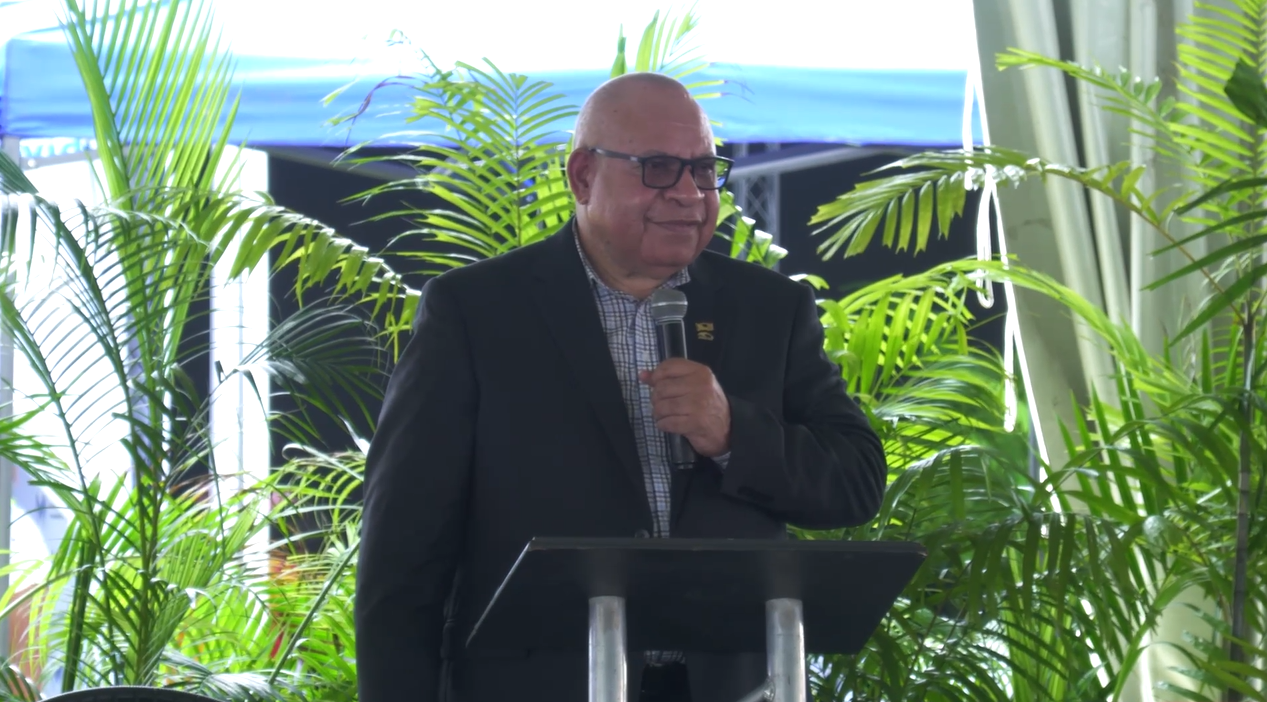 BUSINESS LEADERS DISCUSS PRINCIPLES AT YOUTH RESOURCE WEEK
BUSINESS LEADERS DISCUSS PRINCIPLES AT YOUTH RESOURCE WEEK
Prominent business leaders have challenged PNG’s youth to get back to basics and build from the ground up as the Youth Resource Week got underway yesterday.
TWL Group Managing Director, Larry Andagali, told a small crowd that the basics are important as they set the foundations for growth in any venture.
“Get the basics right...waking up early, spending the right time, managing your resources, respecting the elders.”
Larry Andagali has been instrumental in the development of a strategic vision that is seeing TWL grow into a corporate powerhouse in Papua New Guinea.
In the early days, he developed a shareholder model that has allowed landowning clans in the Southern Highlands, Hela, and Gulf to be owners of TWL.
But Andagali’s vision has always been rooted in basic principles of personal discipline, honesty, and respect.
Papua New Guinea’s youth face significant hurdles, including limited access to quality education, high unemployment rates, and inadequate healthcare services.
These challenges are compounded by the country’s rapid population growth, with nearly 60% of its citizens under the age of 25.
Many young people struggle to find meaningful opportunities to contribute to their communities, often feeling excluded from decision-making processes.
Youth Resource Week has is designed as a platform to have youth engage with private sector in government.
Douveri Henao, founder and CEO of Legacy Group, spoke about the need to be able to evolve and adjust as one progresses through stages of life.
Henao spoke of his experiences learning from his failures and seizing opportunities.
“Many of you are still trying to identify, where do I grow? Where do I contribute? Where do I advance? Where do I prosper? How do I actually make myself productive? So that particular season that you're in right now is the greatest challenge that someone like me is trying to fix. How do we make you productive? In other words, how do we make you contribute so that you have a meaningful life here?”
Over 20,000 people are expected to come through the gates at the Sir John Guise stadium over the next five days.
Published on March 26, 2025
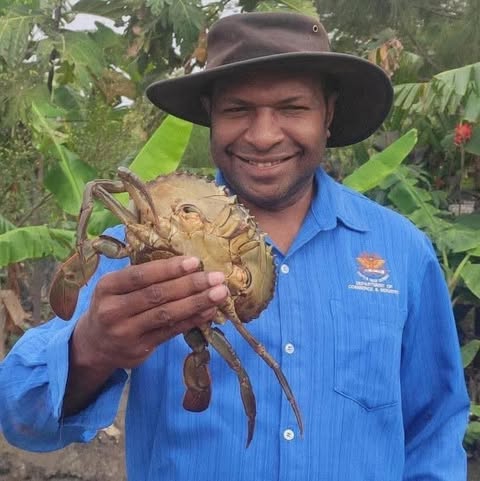 BRIAN "FARMER" WAFFI| FROM LEGAL BRIEFS TO FERTILE FIELDS
BRIAN "FARMER" WAFFI| FROM LEGAL BRIEFS TO FERTILE FIELDS
Brian Waffi's journey from courtrooms to cultivated swamplands is more than just a career pivot – it's a mission to reshape how Papua New Guinea's youth view agriculture.
"When I was a young boy, I always looked at farmers and saw them as potential billionaires," Waffi recalls, his lights up with the same passion that drove him to purchase a seemingly worthless swamp area that others dismissed.
[caption id="attachment_63567" align="aligncenter" width="563"] Tilapia ponds[/caption]
What began as a personal agricultural experiment has now blossomed into a comprehensive youth empowerment program that currently supports nearly 400 young people.
Waffi's farm is not just about growing crops; it's about growing opportunities.
"Most people think getting an education means sitting in an office," he explains.
"But with our current employment crisis, we need to reimagine what success looks like."
His approach is hands-on and holistic.
[caption id="attachment_63566" align="aligncenter" width="480"] "I've always seen farmers as potential billionaires"[/caption]
Young workers are not just laborers but learners, receiving training in farming techniques, market access, and entrepreneurial skills.
They earn a modest income while gaining practical experience that can transform their economic futures.
The farm produces a variety of crops, including bananas, vegetables, and fish, creating a diverse agricultural ecosystem.
But more importantly, it creates a pathway for youth who might otherwise be unemployed or disconnected from economic opportunities.
They’re addressing multiple challenges simultaneously, Waffi says.
Unemployment, food security, and youth empowerment are interconnected, and agriculture can be the solution.
His model is particularly powerful in a country where youth unemployment remains a significant challenge.
[caption id="attachment_63568" align="aligncenter" width="517"] More than 800 youths have been trained through this self-funded farming initiative[/caption]
By providing practical skills, income, and a sense of purpose, Waffi is doing more than farming – he's cultivating hope.
The project hasn't been without challenges.
Operating without government support, Waffi has relied on personal commitment and a vision that sees beyond traditional employment models.
"Sitting in an office pushing papers won't solve our problems," he says firmly.
"We need to be on the ground, doing the work, showing young people that agriculture is a viable and dignified career path."
For many participants, the program represents a lifeline.
Young people from local settlements are learning not just farming skills, but life skills – financial management, teamwork, and entrepreneurial thinking.
[caption id="attachment_63569" align="aligncenter" width="480"] Brian's farm also produces eggs and chickens[/caption]
As Papua New Guinea continues to grapple with economic challenges, Waffi's model offers a compelling alternative to traditional employment pathways.
His farm is a living testament to the potential of agricultural innovation and youth empowerment.
"My dream," he says, "is to inspire 1,000 youth to see farming as more than just a job – but as a way to change their lives and their communities."
In the fertile grounds of his swamp-turned-farm, that dream is taking root, one crop at a time.
Published on March 23, 2025
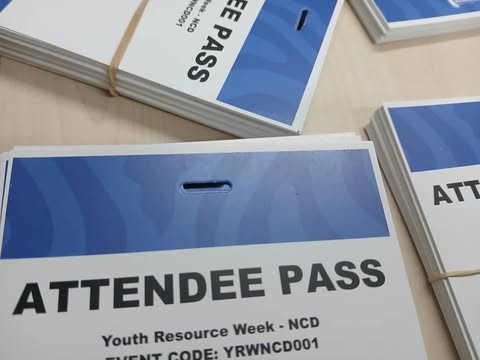 YOUTH RESOURCE WEEK 2025: EMPOWERING PNG'S FUTURE
YOUTH RESOURCE WEEK 2025: EMPOWERING PNG'S FUTURE
Port Moresby is set to host one of the largest youth-focused events in Papua New Guinea as more than 20,000 young people, who previously registered, are expected to gather at Sir John Guise Stadium for the highly anticipated Youth Resource Week (YRW).
Scheduled to take place from March 24 to 28, this transformative event is a collaborative effort between the private sector and the government, aimed at empowering the nation's youth and fostering meaningful connections.
Youth Resource Week is a self-funded initiative that seeks to influence mindsets and provide young people with opportunities to engage directly with key stakeholders, including entrepreneurs, business leaders, government policymakers, and their peers.
The event is part of a broader strategy to address youth unemployment and disengagement, aligning with the National Youth Engagement Strategy 2025-2029.
"We want this event to be a catalyst for change," YRW Director and Founder, Naarai Banam said "This gathering gives young people the opportunities to connect with their government and private sector in a personal and informal manner that is comfortable."
"We want to make this bigger by expanding it to other provinces taking the lessons from NCD."
The week-long program promises a diverse range of activities designed to inspire and equip participants with knowledge and resources on how to acquire valuable skills or simply begin a new journey.
Attendees can look forward to signing up for information sessions on entrepreneurship, career development, and personal growth, as well as hands-on training sessions in digital literacy, vocational skills, and creative arts.
Mentorship sessions will connect youth with experienced professionals, offering guidance and support for their career journeys.
Youth Resource Week emphasizes the importance of collaboration across all sectors.
Corporate organizations, civil society groups, and government authorities are encouraged to participate by hosting booths and engaging directly with attendees.
This approach ensures that young people have access to a wide range of support services, including career counseling, educational resources, and health and wellness information.
"We have to think practical applicable solutions when we're talking about youth development and be reminded that the youth in this country make the majority."
"They are the demographic that holds the power to build or destroy this country."
As the countdown begins, the excitement is palpable.
Youth Resource Week 2025 is not just an event—it's a movement to inspire change and rewrite the narrative for Papua New Guinea's young generation.
Published on March 22, 2025
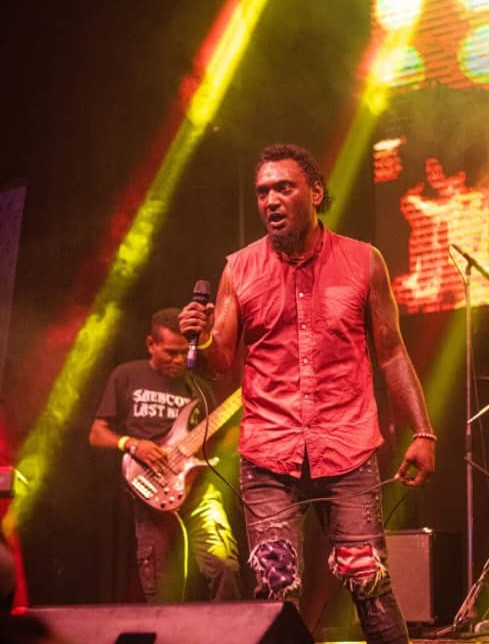 DOOMSVEIN| RISING HARD AND FAST FROM PNG HEAVY METAL UNDERGROUND
DOOMSVEIN| RISING HARD AND FAST FROM PNG HEAVY METAL UNDERGROUND
In the last four weeks, Doomsvein, a heavy metal band from the Autonomous Region of Bougainville, in Papua New Guinea, has drawn quite a bit of attention from the US underground heavy metal scene.
Two radio stations have played their YouTube released track, Excommunicado.
They’ve also received a request for the song to be added to a compilation album with other overseas heavy metal groups.
Guitarist, Freddy Maneo, 51, is band’s most senior member and a veteran of Papua New Guinea’s heavy metal underground.
He said Doomsvein started when he reached out to bassist, Nigel Tabinaman, asking if he wanted to start up a serious band.
BUILDING A BAND
As with many bands in Papua New Guinea, members are highly mobile, moving to seek better opportunities. Maneo was looking to form a band that would focus on practicing the craft.
“I said, look mate, everyone has left. The instruments are here and I’m all alone. Do you want to start a serious band?"
“At the time, Joey Kanaka, our future singer was there with him and Joey was also looking for a band.”
Maneo had created and led other bands. His last before Doomsvein was Ozmium. Nigel Tabinaman was the Ozmium bassist. Joey had grown up watching Maneo and other older musicians play.
DOOMSVEIN INNOVATION
The quality of Doomsvein’s music is an example of the raw talent of self taught musicians, vocalists and “bush” engineers, creating masterpieces with very limited resources.
Finding good vocalists has always been one of the biggest challenges for heavy metal bands in Papua New Guinea. But Joey Kanaka brought with him powerful vocals and poetry.
“When I first heard him sing, I said that is power. Like thunder,” the band’s drummer and sound engineer, Bojar Tsigoto, said.
Then, came the challenge of recording. The band recorded in an outdoor cooking area with pieces of music recorded directly into a laptop for mixing.
“We don’t have a studio. We didn’t record in a studio. I had Joey stand outside and sing, we ditched the condenser mic and gave him the normal one. He has a strong voice and channels his emotions.
“I always say, the quality of music is 97 percent talent and 3 percent gadgets.”
*Into the underground*
Papua New Guinea’s pool of underground talent developed over the last 50 years.
Many of the early rock bands like Port Moresby’s April Sun, Whagi Hellcats led by Simbu rocker, Pat Siwi and Bluff Inn Soles fronted by Eddie Elias in Port Moresby, played both covers and original material.
On Bougainville, bands like Sirosis led by Alun Beck, who later went on to establish, PNG’s second TV station, recorded influential albums that found their way into local radio stations.
Meanwhile, music influences from mine workers, filtered into the nearby communities with youngsters developing palates for 80s hair metal and heavier legendary groups like Black Sabbath and Judas Priest.
As audience tastes evolved, recording studios who had a production monopoly at the time, rejectedmusic from very talented musicians with heavy metal leanings.
“We’ve really struggled” Freddy Maneo explains. “We belong to something that people don’t really understand. Even studios would not let us record because that’s not where the market is.
“Even radio stations would not give us play time.”
BUILDING COMMUNITY
Carmel Pilotti, a heavy metal fanatic who runs Tritones Music out of Port Moresby, has been promoting the talent by organizing concerts for bands from various parts of the country. She said there is top talent that is still undiscovered.
“It blew my mind back then. This was 12 years ago. I think as the guys mature, their music style, their lyrical themes are also maturing as well. They become better over the years.
“I mean, we’ve always had great musicians but what the guys are now putting out is quite amazing.”
Doomsvein is one of many groups that have emerged from the Papua New Guinea heavy metal underground.
In recent years, bands like Port Moresby’s Red Is The New Black, fronted by vocalist, Michael NeroBlack and guitarist Scottie Kata, have played in gatherings organized around the heavy metal community by Tritones Music.
The invitation has always been extended to Heavy Metal HQ, Bougainville where bands like Darkaside, Doomsvein and many others hail from.
The internet and the future
With new opportunities presented through social media, AI apps and recording software, older musicians once written off by recording studios are re-emerging, many times in collaboration with younger musicians who grew up watching them play.
Facebook, YouTube and Soundcloud are helping them create their own audiences in PNG as they reach out to a wider underground community overseas.
Older musicians who lived the hard and fast rock and roll life are mentoring the young by providingpositive leadership.
“People say its dark music. But we actually tell young musicians not to take drugs and alcohol,” said Doomsvein drummer, Bojar Tsigoto.
“Our music is technical. You need a lot of discipline if you want to become better.”
Published on March 7, 2025
 RELATIVES OF A POLICEMAN KILLED IN MENDI BLOCK OFF HIGHLANDS HIGHWAY
RELATIVES OF A POLICEMAN KILLED IN MENDI BLOCK OFF HIGHLANDS HIGHWAY
Relatives of a policeman killed in Mendi several weeks ago have blocked off the Highlands Highway outside of Goroka, preventing the free flow of traffic.
Constable Harry Gorano was injured during an ambush in Mendi.
He was in a coma for three weeks and died in intensive care.
Relatives are demanding the arrest of the killers.
The ambush occurred in January.
His colleagues were escorting a casket to Hela Province.
His collegue, Constable Noah Biape was killed during the attack.
Published on February 27, 2025
 11,000 CHILDREN IN HELA DIAGNOSED WITH SEVERE MALNUTRITION
11,000 CHILDREN IN HELA DIAGNOSED WITH SEVERE MALNUTRITION
A Catholic nutrition officer working in the Hela Province has highlighted high rates of severe malnutrition within communities of people displaced by ongoing tribal conflicts.
Sylvester Walanduo, who has worked in over 40 communities in four districts of Hela, said food shortages and the lack of understanding about nutrition put very young children at risk.
"Over the last two years, I've screened 31,463 children...this is from data I have personally collected," Walanduo said.
"Eleven thousand and ninety-five children suffer from mild to severe cases of malnutrition."
Sylvester Walanduo is employed by the Catholic Diocese of Mendi through its Caritas office, which works with communities.
His work has taken him all over the Hela Province, including tribal fighting hot spots where large numbers have fled from violence.
An important detail that has come to the fore through the data collection is that severe malnutrition is prevalent among children in displaced communities.
According to UNICEF, almost half of all children under the age of five in Papua New Guinea are stunted, or shorter than average for their age, due to chronic malnutrition.
This condition has long-term and irreversible consequences for children's survival and development because of its effects on brain development and learning.
In many instances, he has found families who have sought refuge because the fathers were killed in tribal fights.
"With displaced communities, they are unable to make gardens.”
“They can't feed their families.”
"For them, it's about survival.”
“That's where I see some of the highest rates of severe malnutrition."
Published on February 25, 2025